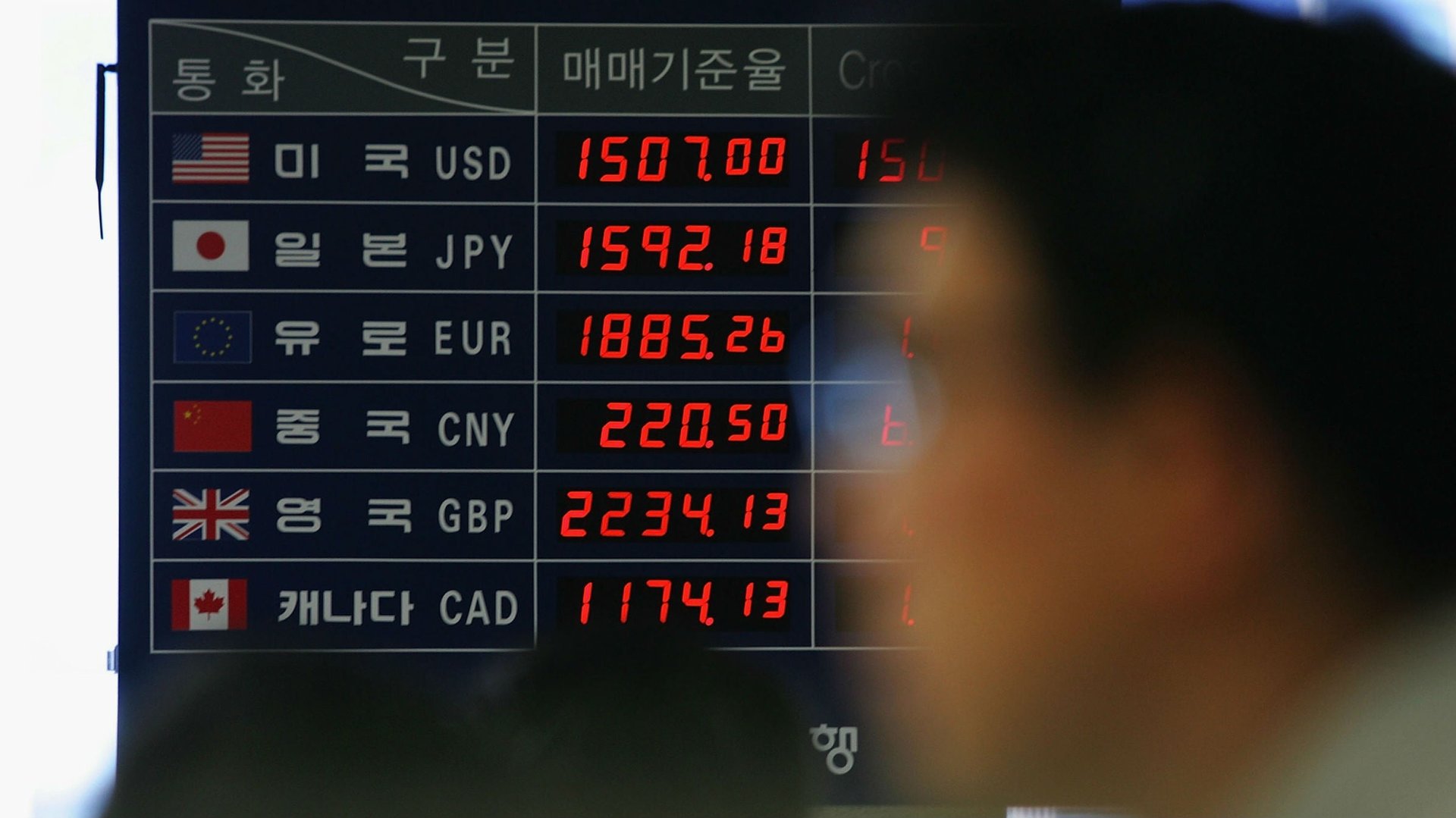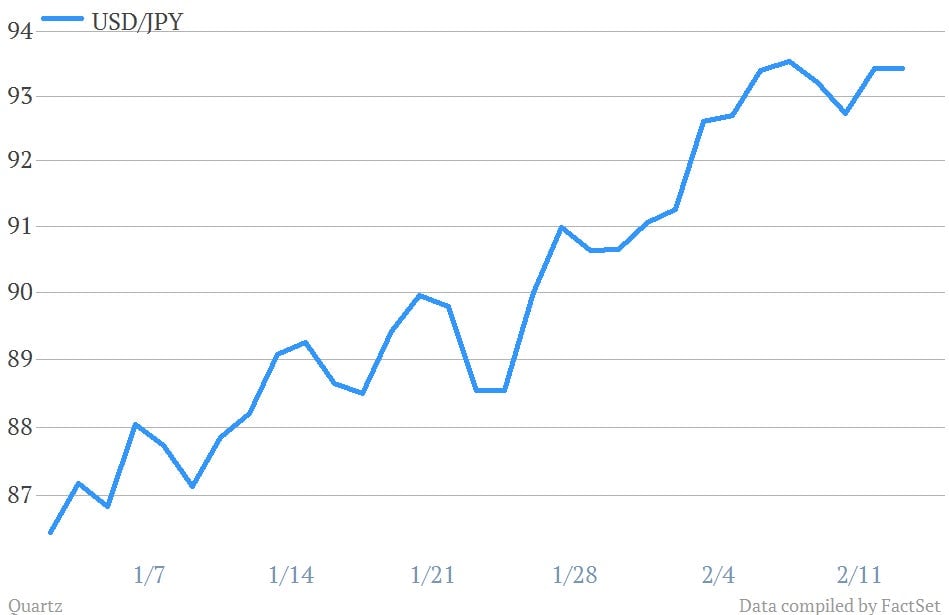As the G-7 denies a currency war, Japan gets a green light to weaken its yen
As the media warns of a “currency war” that’s brewing, the finance ministers of the Group of Seven (known as the “G-7”) economies took to the ramparts today and vowed not to use fiscal and monetary policies to devalue currencies.


As the media warns of a “currency war” that’s brewing, the finance ministers of the Group of Seven (known as the “G-7”) economies took to the ramparts today and vowed not to use fiscal and monetary policies to devalue currencies.
They also stated that none of their members—the US, Japan, Germany, France, Italy, Canada and the UK—was dabbling in any such policies.
“We reaffirm that our fiscal and monetary policies have been and will remain oriented towards meeting our respective domestic objectives using domestic instruments, and that we will not target exchange rates,” said the G-7 in a statement today (paywall).
Uhhh. Isn’t “targeting” an exchange rate exactly what Japan has done in the last few months? Since taking office in mid-December, Japanese prime minister Shinzo Abe has explicitly targeted a 90-yen-per-dollar exchange rate. (Not that we think this Abe’s policy is devious or unfair, particularly given how overvalued the yen has been as Western central banks have aggressively loosened their own monetary policies, in effect cheapening their currencies.)

For better or for worse, the G-7’s liberal definition of what constitutes exchange-rate targeting is declaring the so-called currency wars over before they really got started. Japan can now rest a bit easier that the euro zone might stop hand-wringing about the yen’s slide. Indeed, Japan’s finance minister Taro Aso felt thus vindicated.
“It was meaningful for us as (the G7) properly recognizes that steps we are taking to beat deflation are not aimed at influencing currency markets,” said Aso after the announcement.
Later this week comes the Group of 20 meeting, which includes developing nations from Latin America and Asia. Some of those countries have been disgruntled about what they perceive to be the debasement of the Western developed nation currencies due to excessively loose monetary policy from the US Federal Reserve’s and the UK Bank of England, which has hurt the competitiveness of their exports.
Should they want to pursue currency weakening themselves, some G-20 members might take note that earnest issuing of statements in international bodies apparently absolves even the most explicit of such projects.